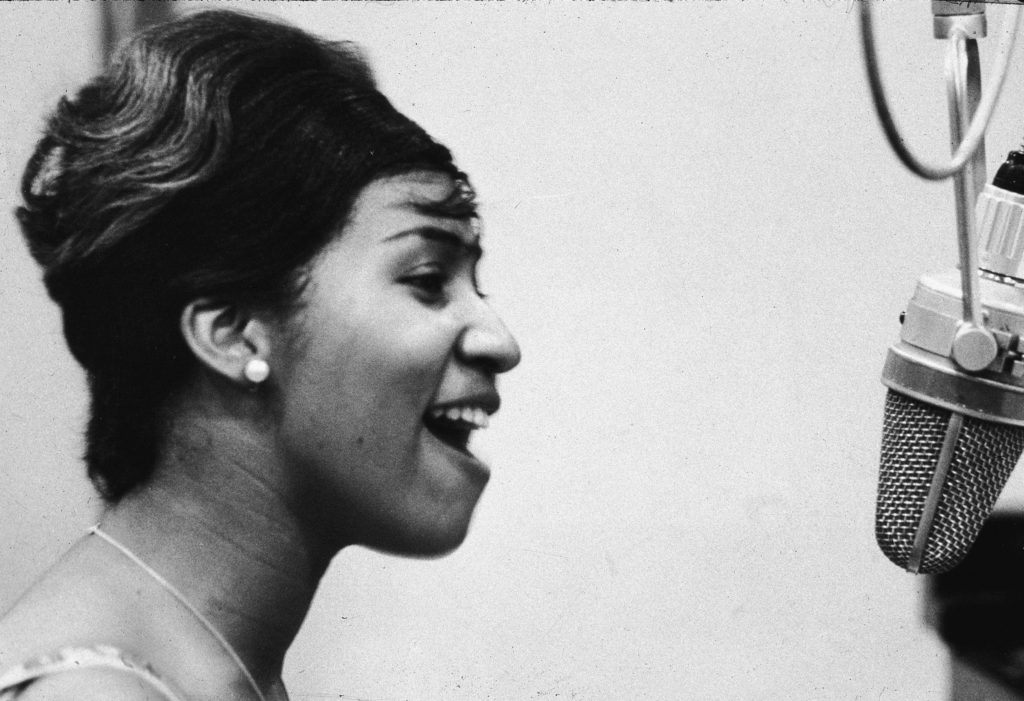Credit: Rolling Stone
On August 16, 2018, the world lost one of the greatest musicians of all time. Aretha Franklin is a prolific artist whose career spanned over 50 years. Some of her most popular hits include “Respect,” “Chain of Fools,” and “Think.” Since the early 2010’s, the renowned musician had been periodically canceling concerts due to undisclosed medical reasons. It is believed that these instances were a result of a silent battle with pancreatic cancer.
The country mourns the loss of an inspiring woman, while simultaneously celebrating the gifts she left us with like never before. In spite of an at-times difficult life or tumultuous career, Aretha Franklin pushed on, leaving behind a legacy that will never be forgotten.

Credit: Aretha Franklin Net
A Prodigy
Aretha Franklin was born in Memphis, Tennessee in March of 1942. She entered the blended and religious family of a Baptist Minister and an accomplished musician. While she was still quite young, the family relocated twice—first to New York, and then Detroit, which finally became the place she would call home for the rest of her life. A divorce split the family in half, and at the age of 10, Franklin lost her mother to a heart attack.
But her mother’s soul was always with her. Her aptitude for music shined through while Franklin was still a small child. With her mother’s background in piano and voice, along with her frequent involvement in the church, her innate, musical skill was fine-tuned before puberty.
She began singing solos at her father’s church and learned to play the piano by ear. At the age of 12, her father took on a managerial role and led Franklin on a “gospel caravan” tour, in which she performed in various churches across the state.
On the Path Towards Greatness

Credit: Nashville Public Radio
1956 brought several, monumental life changes for Aretha Franklin. Her gospel career was picking up steam as she continued to tour and make connections. She dropped out of school and released a variety of gospel singles that were a critical success. But there was a slight stall that no one had expected—at 14, Aretha Franklin became a first-time mother. The teenager was balancing not only the difficult aspects that go hand-in-hand with growing up, but a career and a budding family.
But Franklin didn’t let life slow her down. In 1960, after several labels had been pining for her affection, Aretha Franklin signed with Columbia Records. The lucrative transition produced popular songs such as “Won’t be Long,” and “You Made Me Love You,” but perhaps one of her most widely successful pieces was “Rock-a-Bye Your Baby with a Dixie Melody,” a new take on an old standard. The cover opened Franklin’s door wider than ever, scoring her first Top 40.
The direction Columbia took Franklin, however, was not the one she wanted to go. Columbia wanted to market her as a jazzy-pop artist, despite her desire to return to her blues and gospel routes. When her contract expired, Franklin moved on to Atlantic Records, who understood the vision Aretha Franklin wanted for her music.
Empowerment for the People
Atlantic Records had a steady hand in some of Aretha Franklin’s signature work. As the years progressed “Think” and “Respect” have continued to be not only among the most popular pieces of work by the Queen of Soul, but arguably, among the most popular songs released in the past 50 years.
But many are unaware of the impact her music had on the political climate of her times. In 1967, the nation was experiencing massive changes in racial and gendered rights. Laws against segregation and voting discrimination caused glorious highs and horrific lows this country had yet to be exposed to.

Credit: People
The critical acclaim Aretha Franklin experienced not only for a woman, but a black woman in the 1960’s was monumental. Her career inspired millions, and seemingly overnight, Franklin became a symbol of black empowerment and women’s rights. “Respect” was an anthem for the Civil Rights Movement, and continues to be to this day.
Franklin was actively involved in Dr. Martin Luther King’s campaign. When Dr. Martin Luther King was assassinated, Aretha Franklin sang at his funeral. When money was tight, Franklin assisted the cause by paying the bills, and frequently fundraised for Dr. King and Reverend Jesse Jackson. The Reverend said she “challenged people, to register to vote, to stand up for decency.”
A Revival
The major success Franklin found in the ‘60s was put on hold by the rise of disco fever. Franklin struggled to compete with the major artists of the times and a different sound that challenged her own. Save her performance at the inauguration of Jimmy Carter, the age of disco was proved to be the least fruitful one of her career.
While the decade was difficult on her professionally, it was personally as well. Franklin underwent a divorce from her domestically violent husband. After several unsuccessful album releases, Atlantic Records dropped their contract. Her father was shot in a robbery attempt, and was in a coma until his death in 1984.
At the end of the decade, Aretha Franklin booked a cameo in the off-beat comedy, The Blues Brothers. What was supposed to be a fun gig where she sang her classic, “Think,” became the film that exposed her to a new generation of music-lovers and breathed a second wind into her career.
Artista Records signed Franklin shortly after the success, and it became the label she stayed with for a vast majority of her life. Her first album following her contract, Jump To It, was highly successful, but her subsequent album in 1985, Who’s Zoomin’ Who?, became her highest grossing album to date.
The Rightful Queen of Soul
Aretha Franklin’s expansive career granted her many opportunities and honors. She was presented with a number of honorary doctorates, including one from Harvard University, and another from the University of Detroit. Three former Presidents of the United States commissioned Franklin to sing at their inauguration—the aforementioned Jimmy Carter, Bill Clinton, and Barack Obama.

Credit: The Daily Beast
In 1987, Aretha Franklin became the first woman to be inducted into the Rock and Roll Hall of Fame. She became the second woman to be inducted into the UK Music Hall of Fame. She received Kennedy Center Honors, the Presidential Medal of Freedom, and a Grammy for lifetime achievement—just another to add to the 18 Grammys she collected over the course of her career. In 2008, Rolling Stones ranked Franklin as the greatest singer of all time in a list of 100. This is a cemented place in history that many agree Aretha Franklin entirely deserved.
Among the citizens of this country, and frankly the world, there are vast differences between each and every person—be they moral, or simply based in taste in music. No matter these differences, Aretha Franklin’s music is something that has the power to bring us all together. We are inspired by her music, by her persona, and her legacy is one that will outlive us all.




